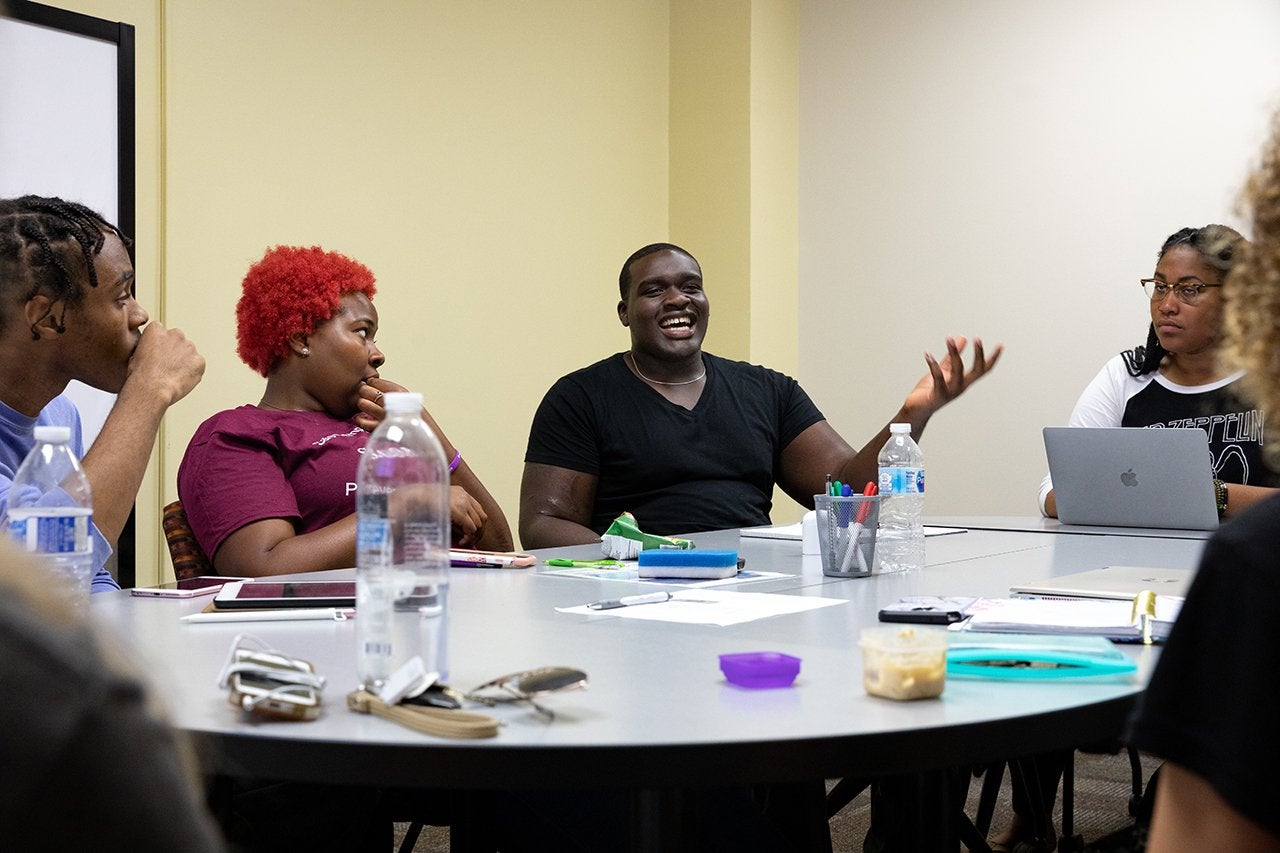Success at the College of Charleston doesn’t just happen in the classroom. And it certainly doesn’t end upon graduation. If anything, the College of Charleston is where success first kicks off, launching its graduates into a lifetime of opportunity and prosperity – in their careers and in their communities.
And that’s exactly what the College’s Launchpad for Success program will do for its first cohort of students starting this fall.
Created in the summer of 2020 by the Office of Institutional Diversity (OID), Launchpad for Success (LP4S) aims to help incoming freshmen and rising sophomores – especially first-generation and AALANA (African American, Latinx, Asian and Native American) students – become “career ready” in two years through mentoring, career development, financial literacy, experiential learning and personal/professional development opportunities.
“Students who might not have the support within their family structure when it comes to pursuing postgraduate opportunities or don’t really have anyone in their immediate family to talk to about how to navigate networking and looking for opportunities while they’re in college: Those are the perfect candidates for this program,” says Kim Gailliard, OID program coordinator, noting that applications will be accepted from June 1–July 29, 2022, for the first cohort of five freshmen and five sophomores.
Gailliard adds the program was developed with the College’s strategic plan in mind, aiming toward retention and graduation and then post-graduation employment or studies.
“Launchpad is inherently designed to give students that platform to succeed during and after their experience at the College of Charleston – and that means coming at it from multiple components – and coming at it early,” she says, explaining that an advisory committee of representatives from across campus has put together a two-year sequence for the program, with each sequence having outcomes. “So, the first year the focus is on self-management – that’s where they will begin to work with the Career Center on the financial literacy component, and with their peer coaches, who will help them adjust to campus and get their bearings.”
The peer mentors – upperclassmen who ideally have prior leadership experience in programs like SPECTRA, Student Ambassadors or National Pan-Hellenic Council – are trained and vetted to work as student leaders with the LP4S students.
“We know that peer education and mentorship overall is very, very meaningful to students, and an effective way to engage students,” says Jennifer Bradley, associate director of the College’s Center for Excellence in Peer Education, who has helped integrate the mentoring aspect into the program. “It means more to students to hear information from someone they can relate to than it does from an adult. Students who have that peer connection do better not just academically, but in terms of being involved on campus. And, of course, all of that improves retention.
“The value of recognizing people like you on campus ties into retention rates, too – the more people that you feel connected to and that you can relate to, the more likely you are to stay, and thrive,” Bradley continues. “Especially for minority students, it can be intimidating to be at a predominantly white campus where you don’t see a whole lot of people who look like you – so it can be really helpful just to have someone who can walk across campus with you, introduce you to people and kind of hold your hand while you get acclimated.”
“And through those small groups, that will be that retention piece,” agrees Gailliard. “And for the career-development component and the experiential learning component, they’ll continue to work with Career Center.”
“This truly is a collaborative effort, with multiple offices working together to assist first-generation, AALANA and underrepresented minority students,” says Jim Allison, executive director of the Career Center, who heads up the career-development pillar of the LP4S advisory committee. “The Launchpad cohort will very likely receive more personalized attention, access to campus and community leaders, and should have clear information on internships and other experiential learning opportunities. This should lead to increased student success.”
No small part of that, of course, is academic success.
“Students will also have to go through academic advising at least once each semester,” says Gailliard, adding that the program has requirements in place to keep students on track. “So that they are successful, we want to make sure that they declare a major by the end of their sophomore year. We don’t want them to just have a good experience. We also want to make sure that they actually do matriculate through the college system.”
With regular incentives for meeting program milestones, peer-coaching in small group settings, culturally relevant career-development opportunities, a network of peers and campus/community professionals, and improved confidence to navigate the post-graduate CofC experience, Launchpad for Success certainly sets students up to do well.
“Ideally, by virtue of completing the tasks, workshops and events associated with the program, the Launchpad cohort will be very prepared for life after college, and importantly, will serve as ambassadors with fellow students to encourage others to utilize all the campus resources we provide,” says Allison. “Any time we can see more students, and in this case perhaps students who otherwise may not have engaged or utilized all the campus resources available to them, using the Career Center, learning more about leadership, securing mentors and more – that is a good thing for CofC.”




